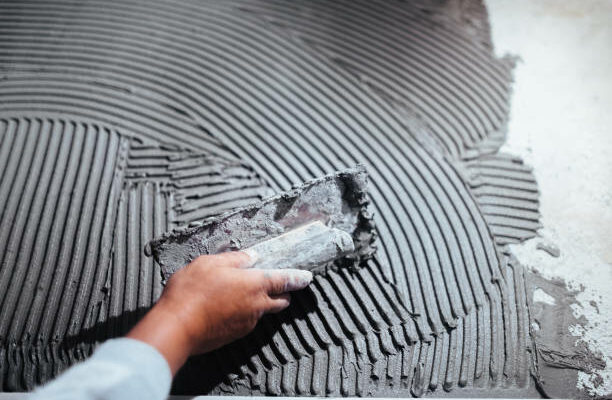Weld-On plumbing cement offers excellent flexibility in a variety of applications. These products are ideal for pool and spa plumbing, electrical conduit, and PVC foam core applications. Moreover, they can be used without primer in non-pressure systems. These adhesives can be sprayed on pipes and flanges, fusing them at the molecular level.
Solvent cement is a fast, easy installation process
Solvent cement is a quick and easy way to combine PVC pipes and fittings. The solvent will melt a thin layer and solidify, forming a waterproof joint. Solvent cement will help to keep the piping system in top condition and increase its life expectancy.
Many different types of solvent cement are available at IPS Corporation for various applications. The type you choose will depend on your application and the end use of the pipes. You’ll need to consider the local codes and requirements and your contractor’s recommendations. Some specialty products are designed for conditions like sub-freezing temperatures and large pipe diameters. However, most jobs can be completed with regular 205 PVC and Primer.
A good quality solvent cement will have good cold resistance. Unlike other adhesives, solvent cement will not soften if stored overnight at sub-freezing temperatures. However, if you’re storing the pipe overnight at these temperatures, be careful to keep it in a cool place. Otherwise, the solvent will start to ‘pool’ at the back of the pipe.
You must clean the fitting and pipe surfaces before applying the solvent cement. Before applying the cement, it is best to use a proper applicator that is half the diameter of the pipe. Apply the primer on the inside of the fitting socket as well as the outside. Repeat this process if needed.
If you’re using solvent cement, it’s best to ensure the surfaces are well-ventilated before welding. A hot environment can cause the cement to evaporate faster. If the surfaces are too warm for the cement to bond, you could risk cracking the pipe or compromising its integrity. Plumbing Cement must be applied to pipe surfaces that are clean and free from moisture.
It is more expensive than Oatey Regular PVC Cement
Weld-On Plumbing Cement is an industrial-grade PVC cement that fuses PVC parts. It requires a primer to achieve the best results. It is ideal for joining large PVC pipes that will take more weight and stress. However, it takes longer to dry, making it less convenient for smaller household jobs.
Weld-On Plumbing Cement is better suited for large-diameter piping and large-diameter fittings, such as irrigation and conduit. The product has better gap-filling properties and is suited for non-pressure applications such as drainage systems and fire sprinklers. Its set times depend on the size of the pipe and the set temperature. For example, if the pipe is 40 feet long, the Weld-On Plumbing Cement takes longer to set.
PVC Cement is available in two sizes: regular and Weld-On. PVC cement is applied to two surfaces and must be held for about 30 seconds before it sets. Oatey Regular PVC Cement is slightly more expensive than Weld-On Plumbing Cement, but it can cure in 15 minutes. And the product is durable enough to handle strain and water.
Medium Clear PVC Cement is suitable for larger diameter piping, pressure pipe, conduit, and DWV applications. It is also ideal for DWV (direct-waste water) and commercial applications. It is a fast-drying product, which is a better choice for residential or commercial applications.
It has better resistance to cold than many adhesives
Weld-On Plumbing Cements come in many formulations and are suitable for various applications. They are available from local distributors. These adhesives offer superior cold resistance than many other adhesives. However, you should choose the right one for your particular project based on the type of pipe and installation.
When choosing a plumbing cement, the diameter of the pipe and fitting is usually the first deciding factor. For smaller-diameter pipes, you can select a regular viscosity, while larger-diameter pipes and fittings will need a medium or heavy viscosity.
Solvent cement is much better at resisting cold than many other adhesives. However, if stored overnight in sub-freezing temperatures, they may soften, and their chemical composition will result in crystallization. It is hazardous because the adhesive may break down or become less elastic.
It is a good choice for CPVC piping
Weld-On plumbing cement is designed for use with CPVC piping and fittings. They are available in many strengths, viscosities, and sets. It makes them a good choice for various piping applications, including industrial and water systems.
CPVC plumbing cement comes in a wide range of colors and thicknesses. The thickness is necessary because it relates to the temperature of the cement and its setting time when used. The proper solvent cement will also allow for rotation and adjustment of the fittings. It prevents the piping from setting up and seizing.
When installing CPVC pipes, Weld-On Plumbing Cements are an excellent choice. The cement has good gap filling and is suitable for piping with different diameters. This cement is ideal for large fittings, irrigation, conduit, and non-pressure applications. However, different pipe sizes require different sets of sets and cure times. If pipe sizes exceed one inch, the curing time increases dramatically.
When using Weld-On plumbing Cement for CPVC piping, you should read the instructions carefully before using them. They are available in many formulas, and you can find them in your local distributors.


Comments